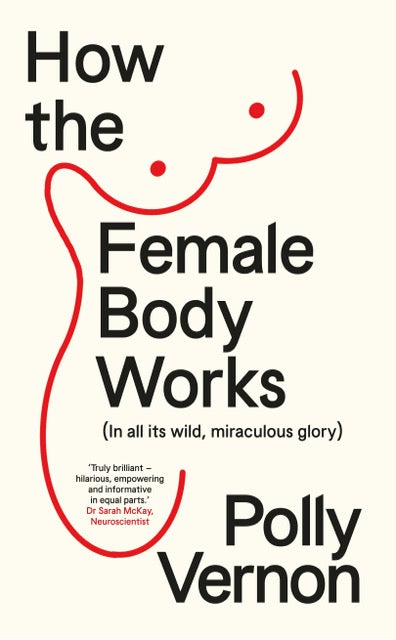A new study from the universities of Oxford, Yale and Cambridge has found that any level of alcohol consumption may increase risks of dementia. This wide-ranging study, published earlier this week on BMJ Evidence-Based Medicine, suggested there may be no such thing as a “safe level” of booze, where brain health is concerned. Dr Anya Topiwala, lead author on the paper, said: “Even light or moderate drinking may increase the risk of dementia, indicating that reducing alcohol consumption across the population could play a significant role in dementia prevention.”
She went on to say that the common belief that a little bit of alcohol, the odd glass of red, say, might actually be good for the brain – neuroprotective – is almost certainly nonsense. “Genetic evidence offers no support for a protective effect,” she said. “In fact, it suggests the opposite.”
So, there you have it. Never mind congratulating yourselves for sticking to the government’s recommended guidelines on booze (14 units, spread out across seven days). Forget “everything in moderation!” and “A little bit of what you fancy does you good!” and: “I always do Dry January, so…” According to this new report, any alcohol is a potential problem.

Honestly? I’m not surprised. Slightly depressed – but not surprised.
This summer, I published my new book: How the Female Body Works. It is the result of two-and-a-half years of hard, joyful research and writing, all focused around interviews with the most knowledgeable academics, medics, neuroscientists, gynaecologists, psychologists and really any other world-renowned expert in women’s health I could get to talk to me.
It covers every stage of women’s lives, from puberty to older age. I wrote it because I realised I knew virtually nothing about my own body, which was absurd. I’d also watched the internet slowly get flooded with contradictory, confusing “advice” and – often contradictory – “wisdom” about women’s bodies, so I set out to get some definitive answers.
I asked my experts questions like “What’s a brain made of?”, “are we our personality – or are we our hormones?”, “why are breasts the shape they are? “What makes a hot flush happen? Not just ‘falling oestrogen levels’… What’s the actual function?” Dumb-but-illuminating questions, from an ignoramus, to the people whose life’s work is women’s bodies, what happens to them, and how to heal and support them.
One of the facts I came up against really early on was: women are twice as likely to get an Alzheimer’s diagnosis as men. Which troubled me. The other thing, a sort of overarching narrative, which ended up lodged in my consciousness like a bad smell, was that alcohol really isn’t very good for us. It really isn’t. Which is a shame, because it can be so fun.
Alcohol is hard on everyone – implicated in everything from cancer to strokes to heart attacks to infections – but it’s far harder on women than it is on men. This is partly because women’s livers produce less of an enzyme called alcohol dehydrogenase, or ADH, the purpose of which is to break down and eliminate alcohol from the body.

Women’s ADH levels fall further yet, in peri menopause and menopause. Beyond that, the way fat is distributed on a woman’s body means it holds onto alcohol for longer, which means female bodies are exposed to alcohol’s toxicity for longer, leaving women more vulnerable to liver damage, heart disease, and at a higher risk of breast cancer. Oh, and also? While a woman is still experiencing a menstrual cycle, alcohol will act more aggressively on her body at certain points in that cycle, leaving her (for example) far drunker, far quicker, around the time she’s ovulating, than at any other point. This is because her body is uniquely concerned with getting her pregnant, so tedious things like processing and removing alcohol from her system get jettisoned. I know!
I learned all this from Dr Sharon Cox, principal research fellow at University College London, an extraordinary scientist, whose work focuses on addictive behaviours, particularly around alcohol and nicotine. All those existing problems, she tells me, have been further exacerbated by, she says: “Women drinking more than we ever have”. Drinking has gone up in both men and women since the pandemic, when we all spent our time making cocktails along with Stanley Tucci on YouTube because there was nothing else to do, and the world was terrifying. “This is particularly in people over 30, and the increase in drinking was sharper in women.”
“Why?” I ask. “Stress?”
“These large national surveys tell us what is happening – not why. But yeah, it’s probably that alcohol was used as a stress relief – and it’s a difficult rut to get out from. [The increase has] mostly sustained.”
At no point did Dr Cox tell me not to drink. She herself drinks… well, moderately. As do I. Assuming the concept of “moderately” means anything, after this latest report, which it probably doesn’t. In fact, none of the experts with whom I spoke for my book told me not to drink, or told me to tell my readers not to drink. It’s just that, when you interview – in depth – 20-ish of the world’s leading specialists on all aspects of women’s health, and nearly every last one of them alludes, en passant, to booze, in a dispassionate, non-judgemental, scientific, but repeatedly critical way, for all manner of reasons, from all their different perspectives and individual areas of study, it’s tough to ignore.
And now a new study emerges, connecting any alcohol consumption at all with possible increased risk of dementia – one which is already twice as high in women, as it is in men – and… I sort of want to give booze up, right here and now. Don’t you?

Honestly? I sort of already have. If pre-book, I was “moderate” in my drinking, I’d now describe myself as not exactly sober… But really, not not sober, either. Physically, I have felt that enzyme in my liver, ADH, falter with age, got to a point where now, the very first sip of wine (once, so joyful, so promising, so potent!) triggers memories not of my last fun, feckless night out – but of my last hangover, the associated anxiety and anguish, all of which, by the way, were the consequence of barely three-and-a-half glasses of house white!
Being drunk used to be so fun! The silliness of tipsiness, the sweet slipe-slide toward disinhibition! I’m wondering if this instinctual and informed growing wariness around booze, coupled with a desire not to live a sober life, might explain the increasing number of people I know, ditching alcohol. The brilliant neuroscientist I interviewed for the book, Dr Sarah McKay, told me she’s hopeful the way women live their lives now – how much more educated we are, how much more likely to work, and have good, deep, social connections – which also leaves us at an advantage over earlier generations of women in terms of neuroprotection – our brains’ defences against cognitive decline.
So, should we just be giving up alcohol, full stop?
I ask Dr Federica Amati. She’s the head nutritionist at ZOE, a trusted source; earlier this summer, she caused ructions on Paul Sculfor’s This Is Powerful podcast by saying: “If you look at alcohol as a drug – like, as a pharmaceutical drug… they’ve calculated what the safe amount would be to consume before these neurotoxic, genotoxic {when a substance damages DNA] effects. And it’s two units a year.”
“I do [want to] give some nuance to that,” she tells me. Please! I say. Here for the nuance.
“We can choose some exposures we subject our body to,” Dr Amati says. “And alcohol may be one of them. But we need to be informed of the impact on our health. I have the occasional glass of red – but I don’t fool myself, it’s good for me.”
So: drink sometimes, but understand what it’s doing to you?
“Don’t if you don’t… But if you do, make sure you’re clear on the risk.”
‘How the Female Body Works (in all its miraculous glory)’ by Polly Vernon’ is out now
Source link

